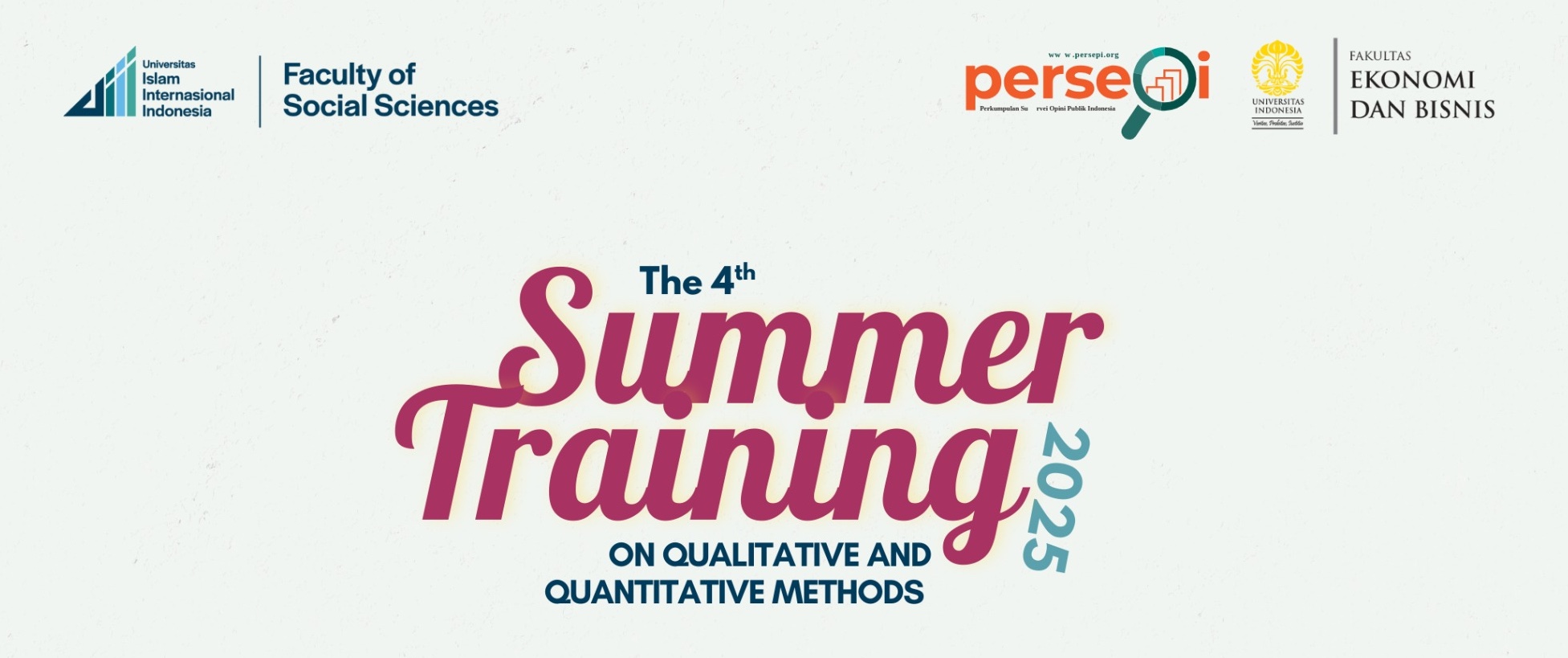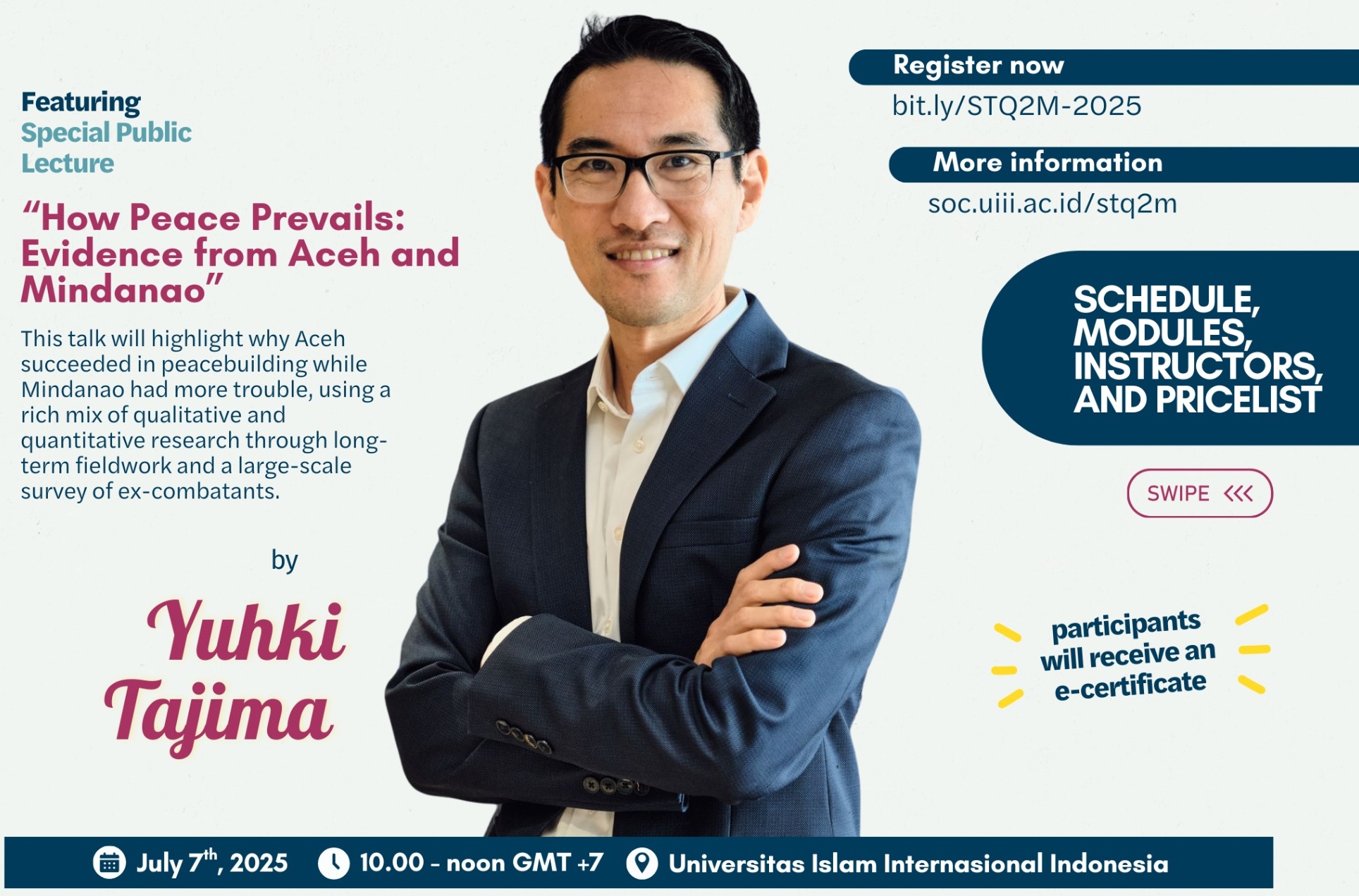More From News
Exploring the Depth of the Meaning of Fasting
March 3, 2026
May 22, 2025
By Dadi Darmadi | Photo: Sarah Permatasari

DEPOK, Indonesia – The Universitas Islam Internasional Indonesia (UIII) is gearing up to host its 4th Summer Training on Qualitative and Quantitative Methods (STQ2M) in June 2025, an initiative that has grown significantly since its inception in 2022.
Organized by the Faculty of Social Sciences (FOSS), the program has become a highly anticipated event for students, researchers, and policy analysts across Indonesia, fostering interdisciplinary collaboration and methodological rigor.
Dr. Philips J. Vermonte, Dean of FOSS at UIII, expressed pride in the program’s evolution. “It’s hard to believe we’re already in our fourth year,” he said. “We started with just six modules in 2022, and now, in 2025, we’re offering 18 modules to cater to the growing demand for robust research training.”
The STQ2M has established itself as a cornerstone for method enthusiasts, drawing participants from universities, think tanks, and government institutions. Dr. Vermonte noted its increasing recognition: “Participants associate STQ2M with UIII, not just FOSS, which aligns with our vision to make UIII a hub for method training, much like the University of Michigan or Syracuse University, where summer programs are oversubscribed and highly selective.”

This year’s program will kick off with a public lecture by Professor Yukio Tajima from Georgetown University, who will share insights from his forthcoming book on conflicts in Aceh and Mindanao. “Professor Tajima’s mixed-method approach, combining qualitative fieldwork and statistical analysis of surveys with hundreds of ex-combatants, will inspire our participants, especially students,” Dr. Vermonte said.
The tradition of a kick-off lecture began in 2023 with support from the Fulbright Specialist Program, which brought Professor Dan Slater from the University of Michigan to deliver a lecture and lead a module and workshop.
In 2024, Professor Thomas Pepinsky from Cornell University followed suit, further elevating the program’s profile.
The STQ2M’s appeal spans disciplines and institutions. Reflecting on the program’s growth, Dr. Vermonte credited its success to dedicated convenors, including Dr. Sirojuddin Arif, who led the first two years, and Dr. Testriono, who has steered the program in 2024 and 2025.
He also acknowledged contributions from UIII’s Faculty of Education and Faculty of Economics and Business, which have provided instructors since the program’s inception.
Looking ahead, Dr. Vermonte called for greater collaboration with other UIII faculties. “We invite all faculties to join us in making STQ2M 2025 even more impactful and inclusive across disciplines,” he said, extending a special mention to Deans Prof. Yanwar Pribadi (FIS), Prof. Nina Nurmila (FoE), and Prof. Dian Masyita (FEB).
The STQ2M continues to solidify UIII’s reputation as a destination for methodological training, with Dr. Testriono optimistic about its future. “Our goal is to make STQ2M a yearly ‘homecoming’ for researchers and students passionate about rigorous methods,” he said.
For more details on the 2025 STQ2M, including registration and module information, visit the UIII website or contact the FOSS office.
Universitas Islam Internasional Indonesia